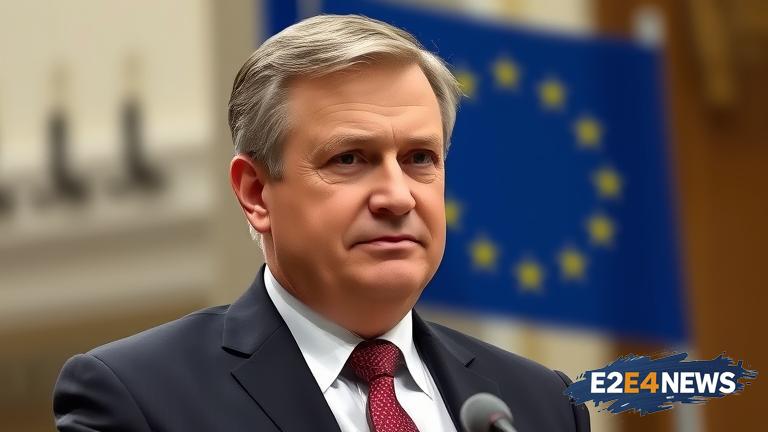The Hungarian government has expressed its opposition to Ukraine’s bid for European Union membership, citing the country’s failure to meet the necessary criteria. According to Hungarian officials, Ukraine has not made sufficient progress in areas such as corruption, judicial reform, and economic development. This stance has sparked controversy, with some EU member states expressing support for Ukraine’s membership bid. The European Union has been considering Ukraine’s application for membership since 2014, when the country signed an association agreement with the EU. However, the process has been slow, with some member states expressing concerns about Ukraine’s ability to meet the EU’s membership criteria. Hungary’s opposition to Ukraine’s membership bid is not surprising, given the country’s history of skepticism towards EU expansion. In recent years, Hungary has been at odds with the EU over issues such as migration and rule of law. The Hungarian government has argued that the EU should focus on strengthening its existing member states rather than expanding to new countries. Ukraine, on the other hand, has been keen to join the EU, seeing it as a way to strengthen its economy and improve its security. The country has made significant progress in recent years, implementing reforms and strengthening its institutions. However, more work needs to be done to meet the EU’s membership criteria. The EU has set out a number of conditions that Ukraine must meet before it can join the bloc, including the implementation of judicial reform, the fight against corruption, and the strengthening of democratic institutions. Ukraine has also been working to improve its economic development, investing in infrastructure and promoting trade with EU member states. Despite the challenges, Ukraine remains committed to its goal of joining the EU. The country’s president, Volodymyr Zelensky, has stated that EU membership is a top priority for Ukraine. The EU has also expressed its support for Ukraine’s membership bid, with the European Commission stating that the country has made significant progress in recent years. However, the process of joining the EU is complex and time-consuming, requiring the approval of all EU member states. Hungary’s opposition to Ukraine’s membership bid is likely to be a major obstacle, given the country’s veto power over EU decisions. The Hungarian government has argued that the EU should not rush into expanding to new countries, citing the need for careful consideration and evaluation. The EU has a number of tools at its disposal to support Ukraine’s membership bid, including the provision of financial assistance and technical expertise. The European Union has also been working to strengthen its relations with Ukraine, including through the establishment of a number of cooperation programs. Despite the challenges, the EU remains committed to supporting Ukraine’s membership bid, recognizing the country’s strategic importance and its potential to contribute to the EU’s economic and political development. The EU has also been working to promote regional stability, recognizing the importance of a strong and stable Ukraine to the security of the region. In conclusion, Hungary’s opposition to Ukraine’s EU membership bid is a significant obstacle, but it is not insurmountable. With the support of the EU and other member states, Ukraine can continue to work towards meeting the necessary criteria and achieving its goal of joining the EU.
